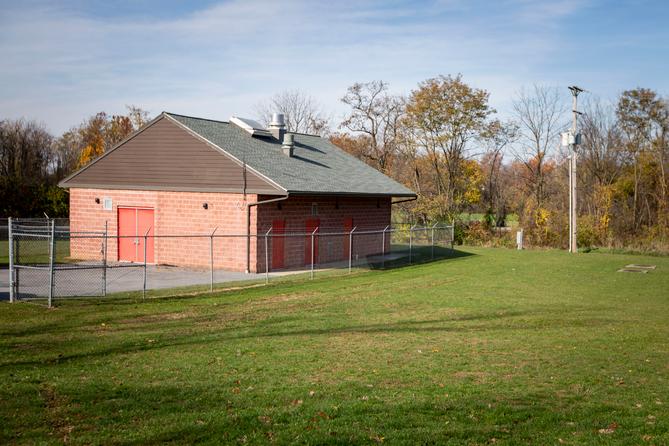BELLEFONTE — In Pennsylvania, a powerful commission regulates private water and wastewater utilities, giving customers an outlet to resolve complaints about service issues, billing, and more.
But no such state-level oversight entity exists for most municipal utilities, leaving residents to work with and rely on local officials when issues arise, or take independent legal action.
These locally controlled entities operate based on policies adopted by elected officials and appointees. They set rates, draft their own processes to handle complaints, and decide whether to offer payment plans to help customers behind on bills.
These entities aren’t totally unchecked, however.
“When people have a dispute with their utility — whether it is under the Public Utility Commission or the municipally owned authority — it’s not that they have no rights,” said Elizabeth Marx, executive director of the nonprofit Pennsylvania Utility Law Project, which provides legal aid to individuals struggling to pay their bills.
Customers of private companies regulated by the state’s utility commission can file informal and formal complaints when they have a problem with their provider. The five-member commission — which oversees more than 150 water and wastewater utilities — also publicly considers requests to increase rates.
Local water and wastewater authorities are “highly regulated” by the federal and state governments, said North Penn Water Authority Executive Director Tony Bellitto.
“We can’t just do whatever we want,” he told Spotlight PA.
Bellitto noted that customers can also reach out directly with questions about billing or specific policies and attend monthly public meetings to voice any concerns and give input on decisions.
Various federal and state laws protect customers from exorbitant billing and provide consumers with rights related to utility shutoffs, Marx said. Additionally, the state’s Municipal Authorities Act requires that rates are “reasonable and uniform.” Authorities also must follow environmental and safe drinking water requirements, which are monitored by the federal Environmental Protection Agency and state Department of Environmental Protection.
But the absence of a state-level oversight body gives unhappy customers somewhat limited recourse, meaning municipal authorities are largely held accountable through voting and local political pressure, said Patrick Cicero, the state’s appointed consumer advocate.
Customers can also sue but at their own expense, he added.
For specific issues — such as being unable to pay a bill or water smelling funny — Cicero recommended first contacting the municipal authority directly, to see if they can resolve the matter. He added that consumers should document their communications, including any dissatisfaction.
This initial outreach is also recommended for customers of utilities that fall under the commission’s oversight.
While some municipal authorities offer payment plans for people struggling with bills, they aren’t required to do so under state law, Cicero said. If a customer can’t pay their balance, he suggested paying as much as possible, even if it’s not the full amount, and attempting to find a solution with the utility provider.
The Pennsylvania Utility Law Project has helped some authorities develop standardized payment arrangements, Marx said. However, she said there needs to be more structured consumer protections in the municipal water and wastewater industry.
Beyond reaching out to local officials directly, if customers still have a grievance, they could take legal action. However, that comes at a personal cost, and navigating the court system effectively can be challenging, Marx said.
In 2017, state Rep. Tina Davis (D., Bucks) introduced a bill that would have given the Public Utility Commission oversight of municipal water and wastewater authorities. In a memo seeking support for the legislation, Davis said state oversight would give residents more options when dealing with poor service and ensure better operations at a reasonable rate.
The proposal never received a vote. Davis later proposed forming an oversight commission, which went nowhere.

